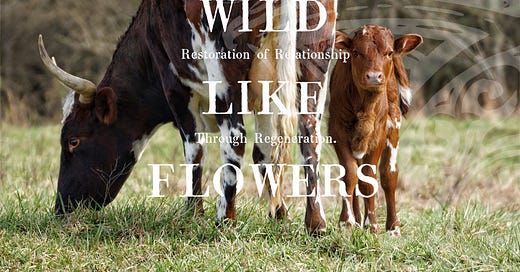Wild Like Flowers, Chapter 3: To Be A Family
"Anyone attempting to give names to the moments and dreams of both the causal and the extraordinary is to find the English language lacking, fully inadequate for the task."
This is Chapter 3 of my second book, Wild Like Flowers: The Restoration of Relationship Through Regeneration. You can buy the book here. Or, you can read it here.
Chapter 3
“Everyone who thinks at all has noticed that our language is practically useless for describing anything.” Anyone attempting to give names to the moments and dreams of both the causal and the extraordinary is to find the English language lacking, fully inadequate for the task. George Orwell was one of the foremost writers of the English language and his essay, To Shoot an Elephant, is perhaps the greatest essay of all time. It navigates the undulating inner conflicts between colonization and community with a rich yet passing neglect of the entire subject itself, leaving the reader enlightened, but with a new and inquisitive appetite. In his 1940 essay, New Words, Orwell does something remarkably unusual—he addresses the thing itself.
Orwell claims that language is incapable of relating the fundamental animations of humanity—emotions, feelings, and motives. He writes that the internal operations of the mind are entirely “indescribable,” although they are “the most important part, for [they are] the source of nearly all motives.” He continues:
“All likes and dislikes, all aesthetic feelings, all notions of right and wrong…spring from feelings which are generally admitted to be subtler than words.”
Feelings may emit mores that are beyond language’s reach, but both feelings and language require a community that listens and understands—they require intimacy. Yes, the foundation of language is intimate community—relationship.
Keep reading with a 7-day free trial
Subscribe to Unshod to keep reading this post and get 7 days of free access to the full post archives.





